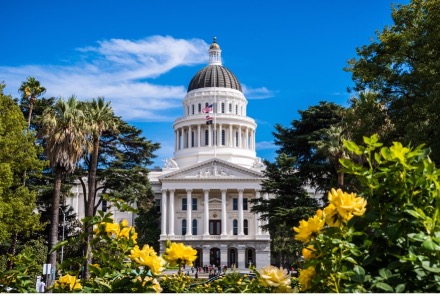Legislative Wrap-Up: CASA Priorities Advance in 2025 Session
Last Friday marked the end of the 2025 legislative session, and we’re pleased to report several bills of interest for CASA and our member agencies were sent to the Governor.
SB 682 (Allen), the CASA co-sponsored bill to ban the use of intentionally added PFAS in a wide range of consumer products including cookware, juvenile products, food packaging, ski wax, dental floss, and cleaning products passed the Assembly late Friday night with a 45–21 vote. It then cleared the Senate on concurrence with 30 votes in favor. The bill now heads to the Governor, who has 30 days to sign or veto the bill. We are incredibly grateful to our member agencies, co-sponsors, and association partners for their strong advocacy in moving this bill forward. Please help us keep the momentum going by utilizing this social media toolkit where appropriate!
We’re also happy to share that SB 317 (Hurtado), which aims to codify the Cal SuWers Network in state law, was also passed and is awaiting action from the Governor. This legislation would allow for the ongoing utilization of California’s wastewater surveillance infrastructure, and critical public health support that began during the pandemic, despite uncertainties around ongoing federal support.
Additionally, after heavy lobbying from the water sector and other environmental stakeholders, the Legislature amended and passed SB 105, a natural resources budget trailer bill, in the final week of session. The legislation includes Proposition 4 climate program allocations including funding for recycled water and vital climate adaptation projects that could benefit CASA member agencies.
Regulatory Update: Water Quality Fees Adopted
Earlier this week, the State Water Resources Control Board (SWRCB) adopted the water quality fees for FY 2025–26. After extensive discussions throughout the year, SWRCB opted to use reserve funds to maintain current fee levels instead of imposing an increase in water quality fees. This is consistent with the priority of local agencies and the SWRCB to try and keep the cost of essential public services affordable.
If you have any questions on any of the topics covered above or any questions about the end of the legislative session, please reach out to Spencer Saks.




 @CASA_CleanWater
@CASA_CleanWater